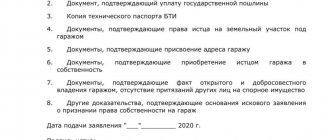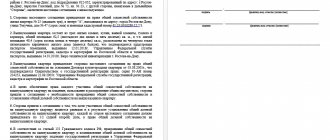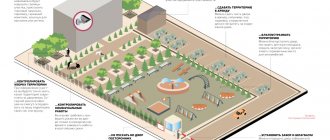The activities of collective and state farms were discontinued with the change in the economic system. Former members of such organizations received other rights: they became equity holders and shareholders. In fact, now such citizens find themselves in conditions of joint ownership of plots intended for farming. Agricultural land unused for its purposes in three years may fall into the category of disputed and will become unclaimed land shares.
The special status of land intended for such activities imposes some restrictions on the owners. In fact, an agricultural plot should always be used and only for its intended purpose. However, the situation is more complex than it might seem at first glance.
Land reform
Changes in land legislation occurred more than 20 years ago. Time has shown that this method did not prove to be the best for these transformations. All agricultural lands were divided into shares and transferred into common shared ownership. However, their boundaries were not determined on the ground. Land shares were transferred to employees of organizations involved in agriculture, their pensioners, employees in the field of health care, everyday life, culture, education, food, who were located in the relevant territories.
As a result, citizens became participants in the common shared ownership of agricultural land. However, over time, the old organizations ceased to exist. New organizations in the form of partnerships, cooperatives and other societies had to resolve issues of how to use agricultural land.
Due to imperfect legislation, disputes arose, including over unclaimed land shares. They were not formalized, and therefore the number of conflicts only increased over time.
How to return ownership of a land share that has become unclaimed
There are cases when shareholders refuse to recognize the fact that property is classified as unclaimed. The legislation provides for a challenge procedure ( clause 9, article 12.1 ).
Challenging algorithm:
- at the meeting approving the list of plots falling into the category of unclaimed, or within three months after its publication, the owner must express objections in writing. For the greatest effect, it is allowed to express opinions both at the meeting and by submitting a written statement;
- file an objection with the municipality that initiated the creation of the list;
- if this does not have an effect, or if the three-month period is missed, the owner of the share has the right to go to court. The claims are to exclude the plot from the category of unclaimed and return the right of shared ownership to the plaintiff. The trial procedure is simple and usually ends in a positive decision on the claim.
In addition to the owner himself, his legal successors can do this if they accepted the inheritance. Proof of the transfer of rights is a certificate of inheritance received from a notary, or an application for acceptance of the inheritance, if the six-month period for entry has not yet expired.
Grounds for recognizing shares as unclaimed
Unlike previous versions, the current law No. 101-FZ approaches the issue more specifically. Thanks to the change in wording, unclaimed land shares are not inherently unclaimed, but can be recognized if the owners did not lease them or dispose of them differently. This is stated in paragraph 1 of Art. 12.1 of the law.
In addition, additional grounds have been introduced upon the occurrence of which a share of land is considered unclaimed. These include:
- Lack of information about the owner in the decisions of local authorities on the privatization of agricultural land before the above-mentioned law came into force.
- The deceased owner has no heirs.
- The heirs of the deceased owner are not entitled to receive the inheritance.
- The heirs of the deceased owner are excluded from the inheritance, refused it or did not accept it.
Legal issues for the farmer #1/ Unclaimed land shares/
UNCLAIMED LAND SHARE. I will immediately apologize to my fellow lawyers, but for ease of understanding I will try to avoid using a large amount of special legal terminology. If you carefully study the official printed publications of various constituent entities of the Russian Federation, you will find information messages about the publication of lists of unclaimed land shares. Unwittingly, some heads of peasant (farm) enterprises have a question: “What kind of shares are these?” We will try to explain simply and clearly what these shares are and what to do if your shareholders are on the list. How should a local government act and how to protect its rights. The distribution of land among members of collective and state farms and other categories of rural workers led to the emergence of shared ownership of agricultural land and the emergence of such terms as “land share”, “land share”, “right of common shared ownership of land”. The distribution was, as a rule, universal. All collective farm workers, pensioners, rural teachers, etc. received the right to land. Naturally, with state ownership of land, enshrined in Article 95 of the Civil Code of the RSFSR, which stated that the land, its subsoil, waters and forests are the exclusive property of the state and are provided only for use. (as amended by the Decree of the PVS of the RSFSR dated February 24, 1987 - Gazette of the Supreme Soviet of the RSFSR, 1987, No. 9, Art. 250), people simply did not know what to do next. Someone gave their “Share” for a long-term lease, someone sold it. But there were also those who, having given the land to the farmer, simply did not have time or did not want to document their legal relationship. As time went! The land was cultivated, and the decision on the issue of legal status was constantly postponed. Meanwhile, the state suffered losses in the form of lost land taxes. And the legislator found a way out of this difficult situation. Art. 12.1 “Unclaimed land shares”, which clearly regulated the procedure and criteria for recognizing a land share as unclaimed, giving the right to local government bodies of rural settlements (LGUs) to register such shares as their property.
But what is a land share? Art. 15 of Federal Law No. 101-FZ “On the turnover of agricultural land” contains a very vague term: “The land share, the rights to which arose during the privatization of agricultural land before the entry into force of this Federal Law, is a share in the common ownership right to land plots from the land agricultural purposes." (as amended by Federal Law dated December 29, 2010 N 435-FZ). An unclaimed land share can be recognized as “a land share owned by right of ownership to a citizen who has not leased this land share or otherwise disposed of it for three or more years in a row. At the same time, land shares, the rights to which are registered in accordance with Federal Law of July 13, 2015 N 218-FZ “On State Registration of Real Estate,” cannot be recognized as unclaimed land shares on the basis specified in this paragraph” (Part 1. Article 12.1 101-FZ). Thus, an unclaimed land share must have the following characteristics: the right to it arose before the entry into force of Federal Law No. 101-FZ; there is no lease agreement or the citizen has not disposed of this share in any other way. Let us schematically depict the algorithm for the action of compulsory medical insurance when registering unclaimed land shares: 1. Preparation and publication in official printed publications of a list of owners of land shares, whose shares may be recognized as unclaimed (Part 3 and Part 4 of Article 12.1 101-FZ) 2. Approval of the list owners of unclaimed land shares at the general meeting of participants in shared ownership. If the list is not approved by the general meeting, then it is approved by the resolution of the Compulsory Medical Insurance (Part 5 and Part 7 of Article 12.1 101-FZ) 3. Applying to the court with a statement of claim for recognition of the right of municipal ownership of unclaimed land shares. (Part 8 of Article 12.1 101-FZ) 4. Registration of municipal property rights to unclaimed land shares.
If a list has been published for your rural settlement, the algorithm of actions for a peasant (farm) farm is simple. First, carefully study the published list of owners to identify people you know. (we immediately assume that the land shares of these persons are being processed by you). If there are owners on the list who once leased their share to you, you must submit an objection to the administration of the rural settlement, attaching documents confirming the occurrence of rental relations. Lawyers' opinions vary, but we believe that the presence of any lease agreement concluded within three years from the moment the right to a land share arises is grounds for excluding the owner from the list, regardless of the duration of the agreement. Having received an objection, the CHI must remove the owner from the list. In any case, this needs to be verified. The final list of owners is approved by a decision of the general meeting of participants in common shared ownership (Part 5, Article 12.1 of Federal Law No. 101-FZ). According to Part 6 of Article 12.1 of Federal Law No. 101-FZ “Persons who believe that they or their land shares are unreasonably included in the list of unclaimed land shares have the right to submit written objections to the local government body of the settlement or urban district at their location land plot that is in shared ownership, and declare this at the general meeting of participants in shared ownership, which is the basis for excluding these persons and (or) land shares from the list of unclaimed land shares” therefore the local self-government body is obliged to accept your objections! It’s good if the owner is alive, healthy, or his heirs have registered their rights on time. But what to do if there is no person? No heirs? In this case, there is only one thing left. Wait for the compulsory medical insurance to file a corresponding claim in court and, within the framework of Article 43 of the Civil Procedure Code of the Russian Federation, independently enter into the case as a third party not making independent claims regarding the subject of the dispute. By doing this, you will achieve two results: First, be aware of both the process itself and the court decision. Secondly, during the consideration of the claim, the compulsory health insurance company will be able to present to the court evidence of the use of land for its intended purpose, i.e. for agricultural production, which will subsequently provide you with some benefits when distributing the land allocated for unclaimed land shares. As the practice of our team has shown, when considering claims of compulsory medical insurance in the courts of the Volgograd region on issues of recognition of the right of municipal ownership of unclaimed land shares, the courts not only check the formal execution of the procedure by compulsory medical insurance (Article 12.1 101-FZ), but also carry out a whole series of one might say “search” activities to establish the location of both owners and heirs. Often resolving the question of whether land shares are unclaimed or not, without understanding that an unclaimed share is recognized not on the basis of a court decision, but on the basis of a decision of the general meeting or a resolution of the compulsory medical insurance. This practice leads to a significant reduction in shares, the rights to which are recognized as compulsory medical insurance. One of the common mistakes made by the compulsory health insurance when registering unclaimed land shares is land management work to form a land plot, carried out before going to court. If the local self-government body has carried out land management work, formed and placed a land plot without cadastral registration, it automatically loses the right to apply to the court with a claim for recognition of the right of municipal property, because by virtue of Part 8 of Art. 12.1 101-FZ., “the local government body of a settlement or urban district at the location of a land plot that is in shared ownership has the right to apply to the court with a demand for recognition of the right of municipal ownership of land shares recognized as unclaimed in the manner established by this article,” and the farm has a gap in the land mass, into which competitors can enter by initiating a bidding procedure. In any case, the actions of the compulsory health insurance company to register unclaimed land shares can be used to your advantage by introducing the problematic lands of your farm into the legal field. By creating for yourself the opportunity to receive these lands for rent on a preferential basis, without holding a tender.
Why were the changes made?
After registration of the agreement, the land plot is considered divided into shares. If the deceased owners do not have heirs or they do not formalize their rights, then no one is involved in the plot. Previously, such parts could not be recognized as unclaimed land shares, since the owner formally disposed of the allotment during his lifetime.
With the entry into force of the new law, the situation has changed. Now, even if a share of a plot of land was rented out, but after the death of the owner the heirs did not show up or did not enter into inheritance, it may be considered unclaimed.
Features of the legal status of unclaimed lands
The main feature of such plots is that they can be considered unclaimed only if they belong to a certain category. These are always agricultural plots that were previously used on collective and state farms and, after their abolition, were transferred to citizens.
Such lands are not always registered in accordance with the rules of real estate registration. Allotments, considered shared ownership, may remain in a “suspended” state for a long time. This does not deprive their owners and tenants of their rights, but it does cause controversy.
The new law on state registration allows you to enter clear data into the Unified State Register, after which claims from municipalities will be impossible.
Unclaimed land is effectively considered no man's land. The municipality takes it into its ownership in order to ensure its use for its intended purpose.
Unclaimed land shares are a special category of plots that were previously part of collective or state farms. Their owners are either unknown or do not use them in accordance with their intended purpose for more than three years. This gives rise to possible claims from municipalities that are aimed at ensuring the use of such sites. Owners and tenants have the right to protect their rights by filing an objection with the administration or in court.
How to return
Owners who believe that their unclaimed land shares are included in the corresponding list unreasonably can appeal to local authorities with an objection, as well as declare this at a meeting of all owners of shared property. This will become the basis for excluding these areas from unclaimed shares.
Thus, a person must take two actions: contact local authorities, stating his position in writing, and also declare his rights at a general meeting. If one of these actions is not completed, then it will not be possible to formally claim the share. But in practice, even in such cases, you can achieve the desired result. For this purpose, it is necessary to take part in a judicial process, where local authorities will apply in order to recognize the share of land as unclaimed. In most cases, the court takes the side of the defendant and rejects the local authorities' claims.
New legislation
The Law “On the Turnover of Agricultural Lands” introduced rules according to which the share applies to lands unclaimed for agricultural purposes. The areas covered by this law are:
- which have not been used for three or more years;
- were not leased during this period;
- there is no information about the owner at the time the land share is privatized;
- there is no one to inherit the right to the plot after the death of the recipient, either by will or by law;
- the heirs refused to accept the share after the deceased;
- heirs are officially recognized as unworthy, but there are no others.
Note : if during his lifetime the owner leased the land, then died, and there are no heirs, the share is also recognized as unclaimed, despite the existence of a lease agreement.
Thus, a land share falls into the category of unclaimed agricultural land if the owner of the rights to it is absent, and there is no information about him or his heirs after his death. Before the new law, there was no clear understanding of what to do with the land in this situation. Now there are rules that help prevent valuable land resources from becoming idle and becoming impoverished.
Inheritance
The right to unclaimed land shares can be recognized if, after the testators, the transfer of property to the heirs was actually carried out, but they did not draw up the appropriate documents. It may also be that the period allotted for this has been missed. Then the only authority remains the court.
In order not to bring the case to court, it is necessary to fill out all the paperwork on time. Along with the land, all buildings located on the site are transferred to the heirs. They have the right to buy the land by priority right. If the land is not privatized, then the heirs will be able to receive it in the following cases:
- If the privatization process was started by the testator, but was not left unfinished.
- If the testator appointed a trustee during his lifetime to carry out privatization.
Woe to the silent ones
In the 1990s, a large-scale operation took place in Russia to allocate land to the people. The workers of collective and state farms, as well as social workers, received what was then an incomprehensible, amorphous property called “land share in the right of common ownership of a land plot.” The happiness that fell on the villager’s head was indicated in the form of a thousandth fraction or in the form of a certain number of point hectares.
At the very beginning of the reform, people had little idea what should be done with this “common property.” But time passed, legislation was improved, Rosreestr and the cadastral service appeared. In 2002, the law “On the turnover of agricultural land” was adopted. It became a kind of bible for those who wanted to become the full owner of the land.
The most efficient shareholders began to slowly allocate plots from the common land masses to account for their land shares. Those to whom the size of the share (or shares) allowed became full owners of the plots. Those whose shares were not large enough were surveyed in groups, circles of like-minded people - and as a result received plots that were in shared ownership. These people can breathe a sigh of relief today: their land is not going anywhere.
But there was and is another category of shareholders - let's call them “silent” - who did not take any action to allocate shares. You can understand people: I didn’t want to pay for the work of a cadastral engineer out of my own pocket, or maybe my health didn’t allow me to get involved in bureaucratic procedures.
The state has long tried to encourage these silent people to speak out. In 2010, a special clause was even included in the law “On the turnover of agricultural land” (clause 3 of Article 19.1), which obligated local governments to hurry up land shareholders. Rural administrations had to, starting in 2013, convene general meetings and raise the issue of land surveying and cadastral work.
The procedure for registration of property by local authorities
Applying to the court with a statement of claim is the first stage of recognition of an unclaimed land share due to the fact that the owners did not dispose of it. In accordance with paragraph 2 of Art. 12.1 of Law No. 101-FZ, local authorities must draw up a list of land shares that can be considered unclaimed. Basically, this question concerns those plots that have no heirs. Depending on the reasons, shares are included in one of the lists.
The list of unclaimed land shares is published in the media. This is done at least 3 months before convening a meeting of owners to approve the share. Previously, publication was carried out only in official sources, which were approved by the authorized body. This practice was extremely ineffective. Information was also published on the Internet. But this did not lead to the desired results. However, the issue is ultimately resolved in court. This body is obliged to notify all interested parties. The owners will receive information about the inclusion of their share in the list of unclaimed lands during the court proceedings. Therefore, even if the information does not reach the owners through pre-trial settlement of the issue, they will be able to take part in the trial.
Thus, after this information has been duly made public, local authorities convene a meeting of the owners of the land plot, in which they are going to approve the unclaimed share of the land plot.
If within 4 months after publication in the media the meeting does not make a decision to approve the relevant list, local authorities do this independently. It does not matter for what reasons the owners of the site did not make this decision.
Once the list is approved, the shares are considered unclaimed and local authorities can go to court to obtain ownership of them. If a positive court decision is made, then on this basis the property can be registered in Rosreestr. Ownership rights are transferred to the person only after the registration procedure. This is stated in Art. 8 Civil Code of the Russian Federation.
From the moment the right to unclaimed land shares is recognized, the municipal body has the opportunity to dispose of them.
What should an owner do when land is included in the list of unclaimed plots?
Considering the fact that the final result of the procedure is the seizure of land in favor of the municipality, not a single owner will like it when his plot is included in the corresponding list. If this happens, it is recommended to do the following:
- Familiarize yourself with the list of areas that may be recognized as unclaimed shares. It is worth paying attention to whether there are persons on the list who are landlords of the plots or previous owners. Often the administration has outdated data;
- Prepare an objection if the site, which is owned or leased, is included in the list.
- Check whether the list has been changed taking into account the filed objection. The final list is formed at the general meeting of owners. An objection can be submitted not only in advance, but also at the meeting itself. This is directly stated in Part 6 of Article 12.1 of the Federal Law “On the turnover of agricultural land.”
If the plot is still recognized as unclaimed, then the next step is to protect your rights in court. The bottom line is that the administration can demand the transfer of land into its ownership only through the court. If an objection is filed, the person will be summoned to court as a defendant.
If a citizen is not summoned to court and is not listed as a defendant, he can independently submit an application to be recognized as a participant in the process. If the decision has already been made, and there was no previous information about its implementation, you can try to restore the period for appeal and demand the cancellation of the judicial act recognizing the land share as unclaimed and a new consideration of the case.
During the trial, you will need to substantiate the essence of your claims, as well as prove that the allotment was used for its intended purpose. Any documents related to the case, as well as witness statements, are accepted as evidence.
The issue requires a careful approach and detailed study. The final result will depend on each action, and if a person takes the wrong steps, he may lose his rights to the plot.
Land for sale
Once the registration stage has been completed, local authorities must publish a notice within 30 days stating that the share can be acquired as a property for a cost of 15% of the cadastre price. This indicator is set at the state level, and local authorities do not have the right to set a different price.
Notice of the opportunity to purchase these shares is published in the media. These are local newspapers, the official virtual resource of the municipality (if there is one), as well as information boards.
The preferential right of acquisition belongs to peasant farms or other organizations that use this plot. This opportunity is valid for them for six months from the moment the ownership of unclaimed land shares is recognized by local authorities. If no agreement is concluded during this period, the local authorities will allocate this part as a separate plot of land, observing the established minimum dimensions. After the allotment procedure, the land plot is put up for sale again, but under different conditions.
How is a site recognized as unclaimed?
Land can fall into this category only after the official assignment procedure, which occurs according to a regulated algorithm:
- Municipal authorities compile a list of persons, owners of land shares, whose lands are at risk of falling into the category of unclaimed. The main and only sign: the lands have not been developed, although at least three years have passed since the date of receipt of the share.
- In addition, the same body creates a list of lands that are planned to be given the status of unclaimed.
- The list is posted in the media: paper (official publications) and electronic (website of the department that created the list).
- After at least three months, a meeting of participants in shared ownership is convened. Lists are discussed and then approved at this meeting.
- If for some reason the list could not be approved through a meeting, then 4 months after official publication the administration has the right to approve it independently. This is also provided for by law.
Responsibility
Having a land share is the legal right of the owner, but requires a responsible attitude. The owner must cultivate the land himself or lease it to agricultural organizations that will take on the corresponding functions. In this case, the owner will receive his percentage in the form of rent.
Tenants are held liable to the owner of the land plot for incorrect or improper use. This is stated in Art. 183 Civil Code of the Russian Federation. And the responsibility to the state is to timely pay taxes on profits and land.
The provisions of Law No. 101-FZ are designed to regulate relations in the field of land circulation between owners and local authorities. Government agencies in charge of land control must regularly check the state of cultivation of agricultural land. In case of illegal and improper use, they are obliged to act in accordance with the law immediately.
Disposal of unclaimed shares by the municipality and their registration
Plots of land are officially recognized as ownerless from the moment the corresponding list is approved. After this, local authorities have the opportunity to apply to the court for the transfer of land plots into their ownership. If the court makes a decision in favor of the local administration, the latter, after registering the plots in the prescribed manner, has the opportunity to put them up for sale.
In the process of selling land, authorities are instructed to inform about this fact through the media the local population of a settlement or other locality, who have the right to acquire land for their own possession. At the same time, the price for allotments is no more than fifteen percent of the cadastral value of the land, but the total amount is unchanged, as it is established at the legislative level.
Legal grounds
In 1991, the state began to transfer, free of charge, rights to ownership of land plots from the general land mass to collective farm workers. The new owners became the owners of the rights to own the plot.
If such plots were empty for a certain time and were not exploited, then they began to be transferred to the category of unclaimed land shares.
These plots were not always registered in accordance with the rules of real estate registration, and remained in an uncertain status for a long time. In order not to deprive owners and tenants of their rights, the new law allows data to be entered into the Unified State Register so that claims from the municipality become impossible.
Legal regulation is based on the Constitution of the Russian Federation, the Land and Civil Code of the Russian Federation, as well as other regulatory legal acts of the Russian Federation.
The current Federal Law of the Russian Federation is aimed at regulating relations related to the ownership and disposal of plots of agricultural land.
According to the Law, rules and restrictions are established in relation to land plots, which apply to shares of ownership of common property, to the emergence or termination of rights, as well as the withdrawal of agricultural land into state or municipal ownership.
According to the Land Code of the Russian Federation N 354-ФЗ and N 447-ФЗ, the law does not apply to garden and vegetable plots of land, plots for the construction of garages and personal farming, as well as to plots where real estate is located. Land in state or municipal ownership that is occupied by distant pastures and reindeer pastures in the Far North is not subject to privatization.
The concept of unclaimed land
In accordance with the Legislation, a land share cannot be recognized as unused if it is registered in accordance with the rules of the Federal Law “On State Registration of Real Estate”.
The plot is considered unclaimed if the rights have not been re-registered, the plot has not been leased or has not been used for 3 years . That is, this is the share of common property that is not used for its intended purpose.
The turnover of land plots is based on:
- maintaining the intended use of agricultural land;
- establishing a maximum size for the total size of agricultural areas;
- establishing the provision of land to legal entities, stateless persons, foreign citizens;
- the preemptive right of a constituent entity of the Russian Federation to sell land, except in cases of sale at public auction;
- the preemptive right of other applicants to a land plot that is in shared ownership.
If the plot was registered as sole property, then the owner has the right not to rent it out or not to use it at all.










